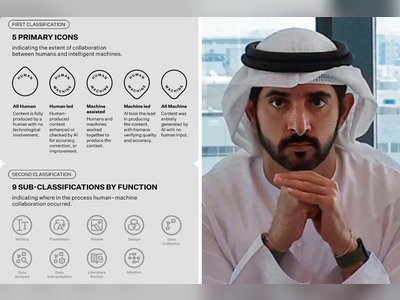
UAE Implements Unified Licensing Procedures for Higher Education Institutions
New regulations aim to streamline the licensing and accreditation processes for educational institutions in the UAE.
The Ministry of Higher Education and Scientific Research in the United Arab Emirates announced the adoption of standardized mechanisms for the licensing of higher education institutions and the accreditation of their academic programs, in accordance with Ministerial Decision No. 27 of 2024 and Ministerial Decision No. 62 of 2025.
These regulations outline the pathways and mechanisms for institutions to obtain necessary institutional licenses and program accreditations for both new and existing educational programs.
A unified evaluation framework will assess the performance levels of these institutions based on outcome-oriented indicators.
Dr. Mohammed Al-Mulla, Undersecretary of the Ministry, indicated that this initiative is part of the ministry’s efforts to simplify and facilitate services provided to higher education institutions, aligning with government bureaucracy reduction targets.
The new regulations will unify licensing procedures between the ministry and local educational entities, thus reducing the time and effort required and minimizing the documentation involved in the licensing process.
The ministerial decisions align with the ministry's strategy to organize and govern the higher education sector, ensuring the quality and efficiency of outcomes, particularly in connecting educational outputs with labor market requirements.
According to the new framework, the licensing time for new institutions will be reduced from six months to one week, provided that all requirements are met.
The timeframe for obtaining accreditation for new academic programs will also decrease from nine months to one week, while the period for renewing accreditation for existing programs will be shortened from nine months to a maximum of three months.
Under the new regulations, a risk management-based approach will be adopted for renewing licenses and academic accreditations for currently established universities, enabling faster and simplified renewal procedures.
Institutions classified as low-risk will receive licenses valid for six years, with oversight conducted every three years.
In contrast, high-risk institutions will be granted licenses for two years, with annual reviews.
The new framework offers accredited higher education institutions a standardized evaluation mechanism grounded in clear performance indicators, facilitating the assessment of their outputs.
The recent decision is expected to significantly reduce the required documentation from 28 to five documents for new institutions seeking licenses to operate.
Accreditation documentation for first-time academic program approval will decrease from 13 to one document, and renewal documentation for existing institutions will be streamlined from over 11 documents to one.
Additionally, institutions will need only one document to achieve accreditation for a new program, down from 13.
The regulations delineate the pathways that new higher education institutions must follow to obtain their licenses and start operations, alongside the processes for obtaining accreditation for their academic programs.
The procedures for renewing institutional licenses and program accreditations for existing programs have also been clarified.
According to the new regulations, institutional licensing will occur through the ministry upon receipt of licensing from respective local educational authorities, while programs that have already received international accreditation from recognized accrediting bodies will not be subject to additional procedures.
These regulations outline the pathways and mechanisms for institutions to obtain necessary institutional licenses and program accreditations for both new and existing educational programs.
A unified evaluation framework will assess the performance levels of these institutions based on outcome-oriented indicators.
Dr. Mohammed Al-Mulla, Undersecretary of the Ministry, indicated that this initiative is part of the ministry’s efforts to simplify and facilitate services provided to higher education institutions, aligning with government bureaucracy reduction targets.
The new regulations will unify licensing procedures between the ministry and local educational entities, thus reducing the time and effort required and minimizing the documentation involved in the licensing process.
The ministerial decisions align with the ministry's strategy to organize and govern the higher education sector, ensuring the quality and efficiency of outcomes, particularly in connecting educational outputs with labor market requirements.
According to the new framework, the licensing time for new institutions will be reduced from six months to one week, provided that all requirements are met.
The timeframe for obtaining accreditation for new academic programs will also decrease from nine months to one week, while the period for renewing accreditation for existing programs will be shortened from nine months to a maximum of three months.
Under the new regulations, a risk management-based approach will be adopted for renewing licenses and academic accreditations for currently established universities, enabling faster and simplified renewal procedures.
Institutions classified as low-risk will receive licenses valid for six years, with oversight conducted every three years.
In contrast, high-risk institutions will be granted licenses for two years, with annual reviews.
The new framework offers accredited higher education institutions a standardized evaluation mechanism grounded in clear performance indicators, facilitating the assessment of their outputs.
The recent decision is expected to significantly reduce the required documentation from 28 to five documents for new institutions seeking licenses to operate.
Accreditation documentation for first-time academic program approval will decrease from 13 to one document, and renewal documentation for existing institutions will be streamlined from over 11 documents to one.
Additionally, institutions will need only one document to achieve accreditation for a new program, down from 13.
The regulations delineate the pathways that new higher education institutions must follow to obtain their licenses and start operations, alongside the processes for obtaining accreditation for their academic programs.
The procedures for renewing institutional licenses and program accreditations for existing programs have also been clarified.
According to the new regulations, institutional licensing will occur through the ministry upon receipt of licensing from respective local educational authorities, while programs that have already received international accreditation from recognized accrediting bodies will not be subject to additional procedures.











